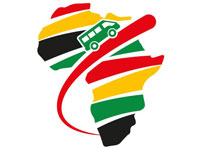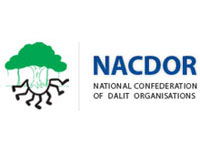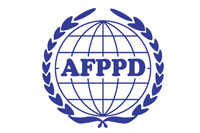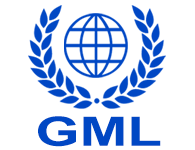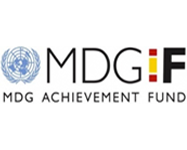Koraput District – Orissa, India – Sadan Krishani a 29-year-old daily labourer lives with his wife and son in Chakarliguda village in Koraput, a tribal-populated remote district in the central Indian state of Orissa, where SAMADHAN has been piloted. He was intrigued when a community volunteer trained by a local NGO partner, SOVA, came to his village to talk about a completely new way of registering grievances with the government. The prospect of filing a complaint via SMS that he could track and see on the internet seemed to him the only remaining chance to receive his outstanding wages. When he couldn’t find any other work he had applied for a MGNREGA job and had worked 15 days (at a minimum wage of Rupees 90 per day or less than 2 USD) under the scheme. Despite his efforts to chase the payment for this work by complaining to BDO officials and the Sarpanch (elected head) of the village, the wages amounting hadn’t been paid for more than 4 months. The missing money weakened them financially to the extent that they were unable afford nutritious food for the family.
As fortune would have it, Sadan was identified by the SOVA team as a potential candidate to lodge the first complaint on Samadhan during the formal launch ceremony on August 26th, 2011, inaugurated by the State Chief Minister. It was a courageous decision to lodge the complaint publicly but Sadan agreed to do so to put more pressure on the government. His identity was protected under a proxy name for the launch and is still protected. When he approached the local government officials shortly after the event he was told the grievance was now handled at district level and would be resolved within 5 days. This proved to be the case and after more than 4 months Sadan finally received the wages he had been owed for so long. After covering their family needs he and his wife were able to invest a small proportion hoping to set themselves up for a more secure future.
Encouraged by this success, Sadan and the SAMADHAN volunteers jointly educated the villagers of Chakarliguda on various government schemes and the grievance mechanisms available to them. With their newly gained understanding the villagers realised that 25 of them were owed MGNREGA wages for eight days’ work each. In September 2011 they decided to attend a Saturday Grievance Cell and lodge the complaint directly with the District Collector (as the SAMADHAN process wasn’t fully integrated into government processes at the time although its trained volunteer cadre was campaigning and generating awareness of basic entitlements among citizens). They also informed the Sarpanch and the Block Development Officer (BDO). An enquiry under the supervision of the District Collector (District Administrative Head and a civil servant) was carried out and 20 villagers received their wages. The money owed to the remaining villagers was released at a later point in time when they had completed more work. The joint success was celebrated and the villagers encouraged Sadan, the SOVA staff and SAMADHAN volunteers to continue educating others on their basic entitlements.
It was such a regular awareness raising programme that brought to light that BDO officials had misused a total of Rupees 80,000 (approx. USD 1,440) belonging to 6 members of different villages in Koraput. In a similar way to the above example, the villagers came together and shared the complaint with the Sarpanch and relevant administrative officials (BDO, District Collector) and even with elected representatives such as a Member of the Legislative Assembly (MLA) and a Member of Parliament (MP) and lodged it at a Saturday Grievance Cell, the government’s existing traditional complaint mechanism. The District Collector immediately ordered the vigilance department to look into this matter. The allegations were found to be true and the officials were brought to account. The amount of Rupees 80,000 was distributed to the 6 villagers. Looking back at the events Sadan says: “SOVA staff and SAMADHAN volunteers have always been willing to help. The implementation of SAMADHAN has strengthened our ability to make the government role more transparent.”

